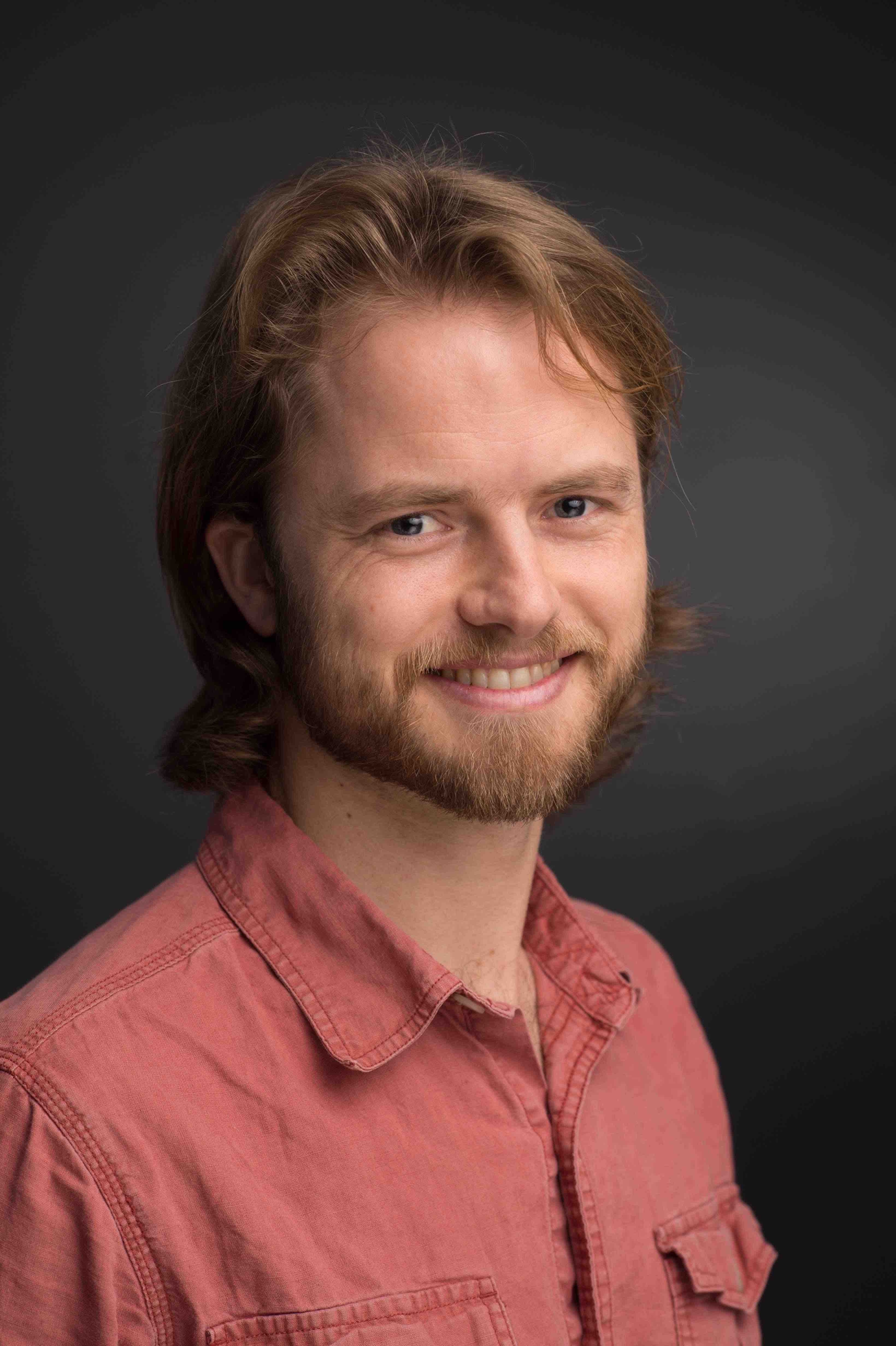Note: This document is intended as an informal, easily-readable overview of CFAR’s income and expenses in 2018 and 2019, and of our financial projections for 2020. You can view our 2019 Independent Auditor’s Report here, and our most recent 990 here.
2018 Income
In 2018, CFAR1 received approximately $2.2 million in revenue. Half this sum came in the form of general support from BERI (the Berkeley Existential Risk Initiative), $800k of which was granted to fund the down payment on our purchase of a permanent venue in Bodega Bay. The remainder was a mix of grants from Open Philanthropy Project and Long-Term Future Fund, individual contributions, and workshop revenue.
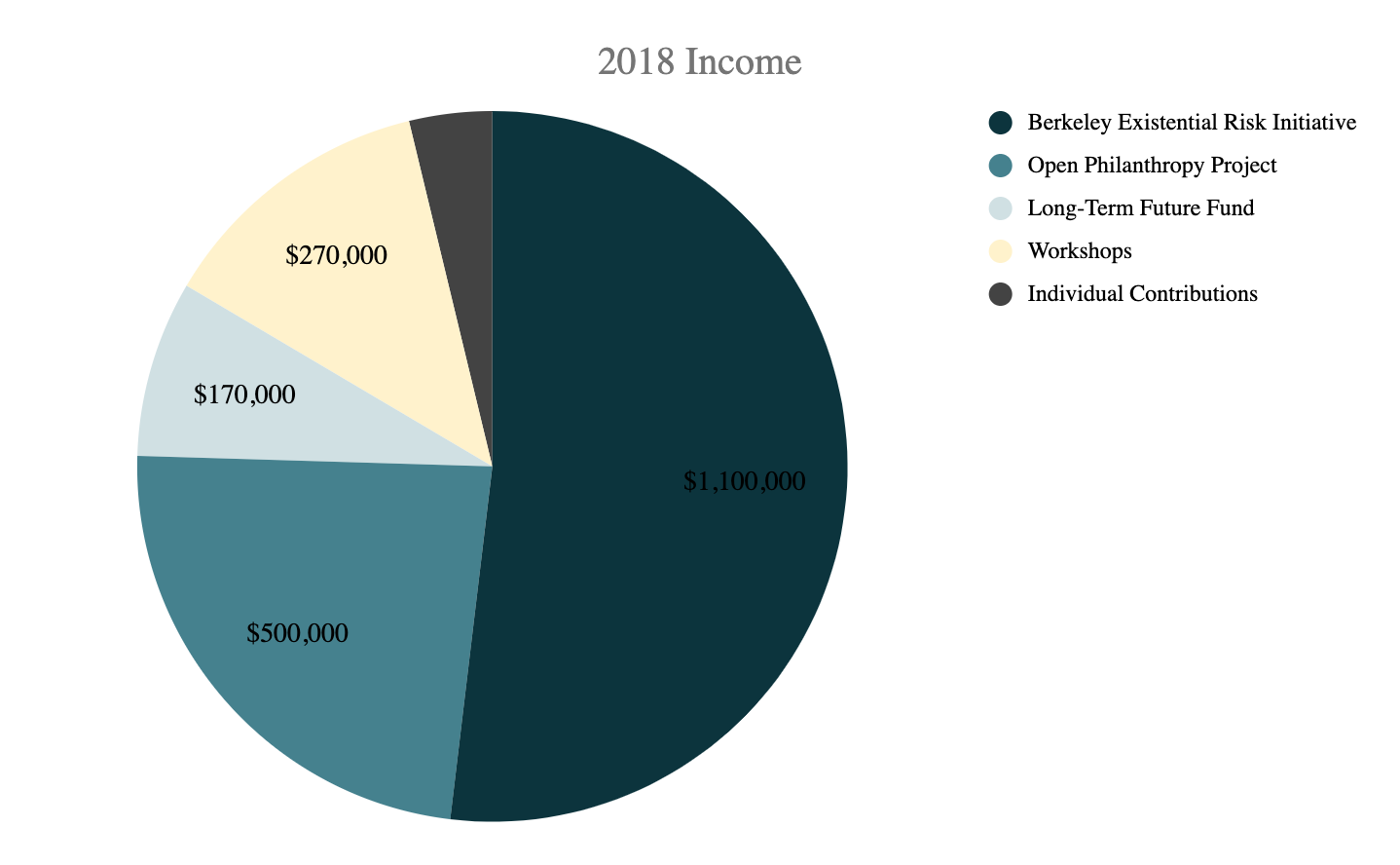
2018 Expenses
In 2018, CFAR spent approximately $2.6 million. ~40% of this sum went toward the purchase and renovation of our venue in Bodega Bay, ~25% went to salaries, and the rest went toward programs and operating expenses.
Note that the figures for “programs” below (i.e. for mainlines, AI safety workshops, etc.) only include expenses we wouldn’t otherwise have incurred had we not run that workshop on the margin—e.g., they don’t include recurring, mostly-independent costs like staff salaries and venue maintenance.
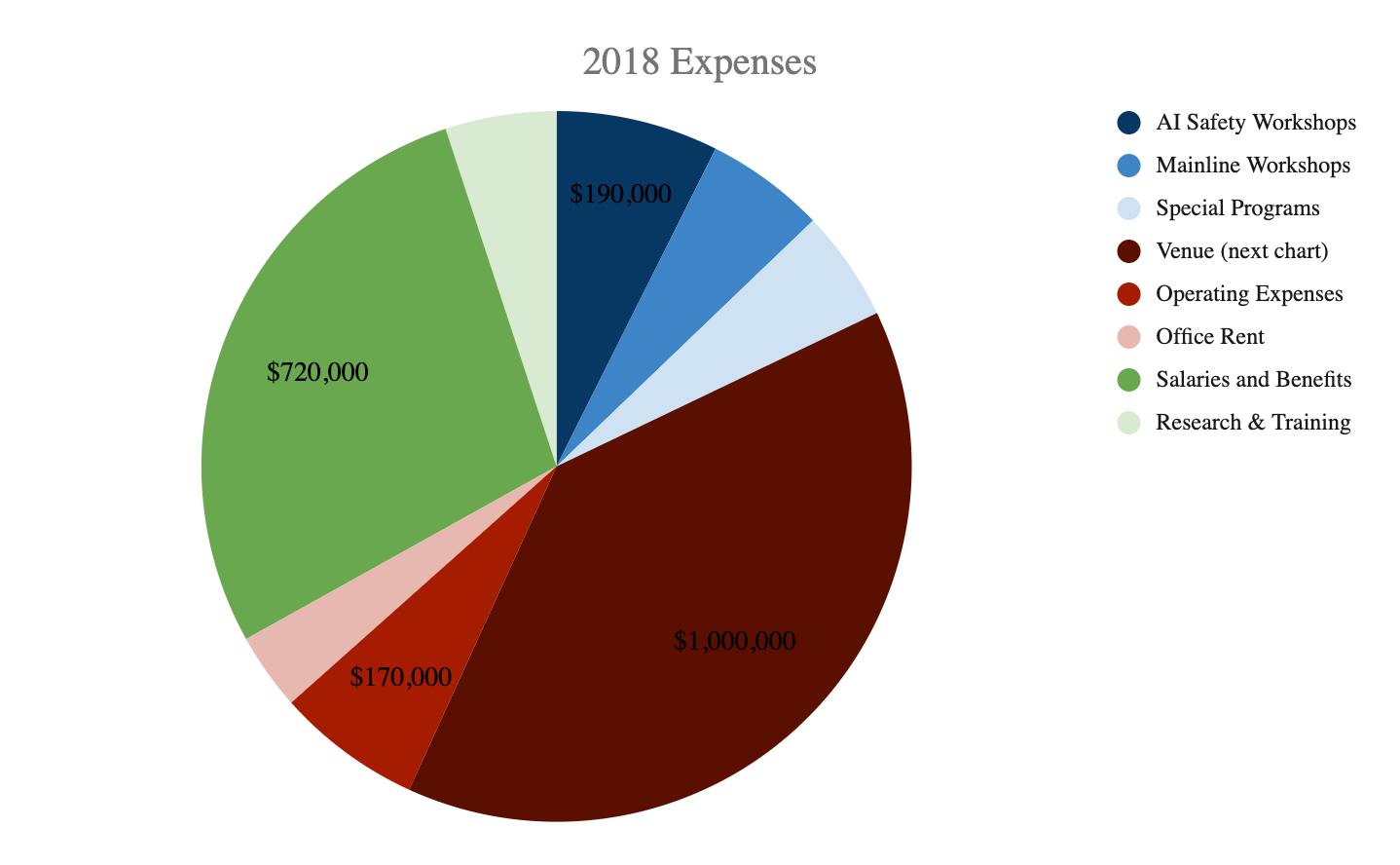
Since we bought and renovated our permanent venue in 2018, venue-related expenses composed a large portion of our budget that year. You can see this category broken down here:
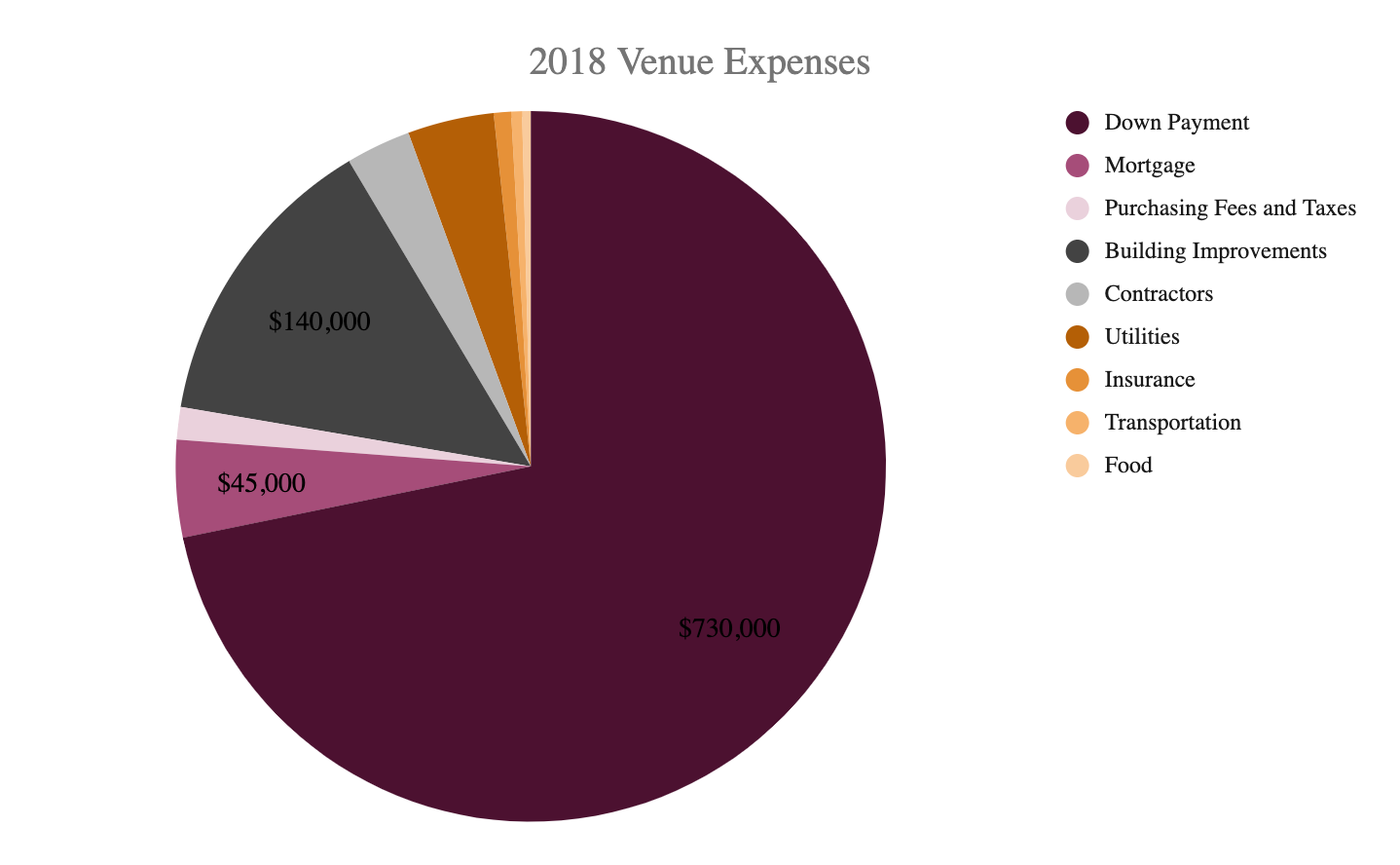
2019 Income
As of December 1, CFAR had received approximately $1.5 million in 2019. 84% of this sum came from grants (mostly from Open Phil, BERI, LTFF2, SFF, and an anonymous charitable fund), and 16% came from workshop revenue.
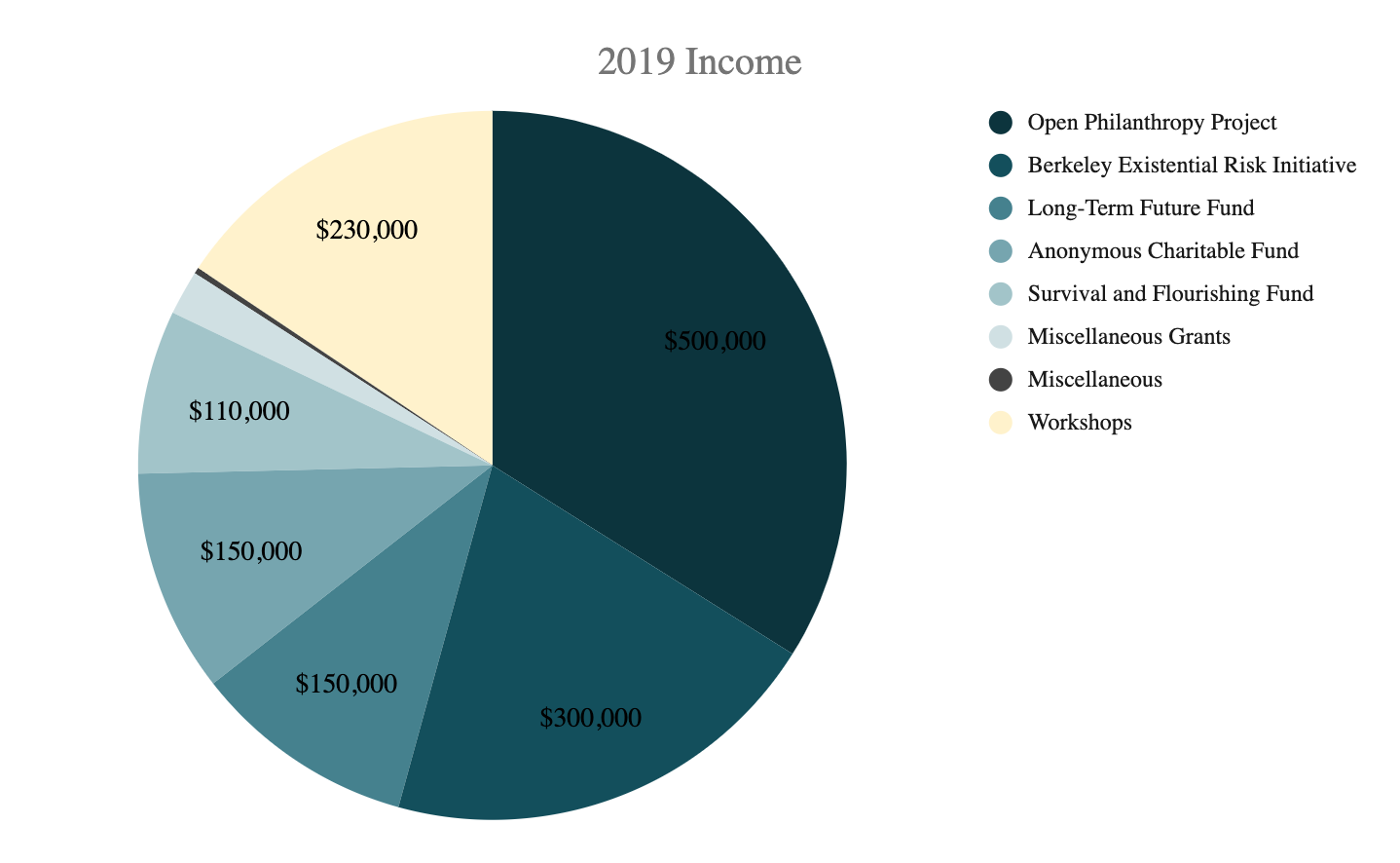
2019 Expenses
As of November 1, CFAR had spent approximately $1.4 million.
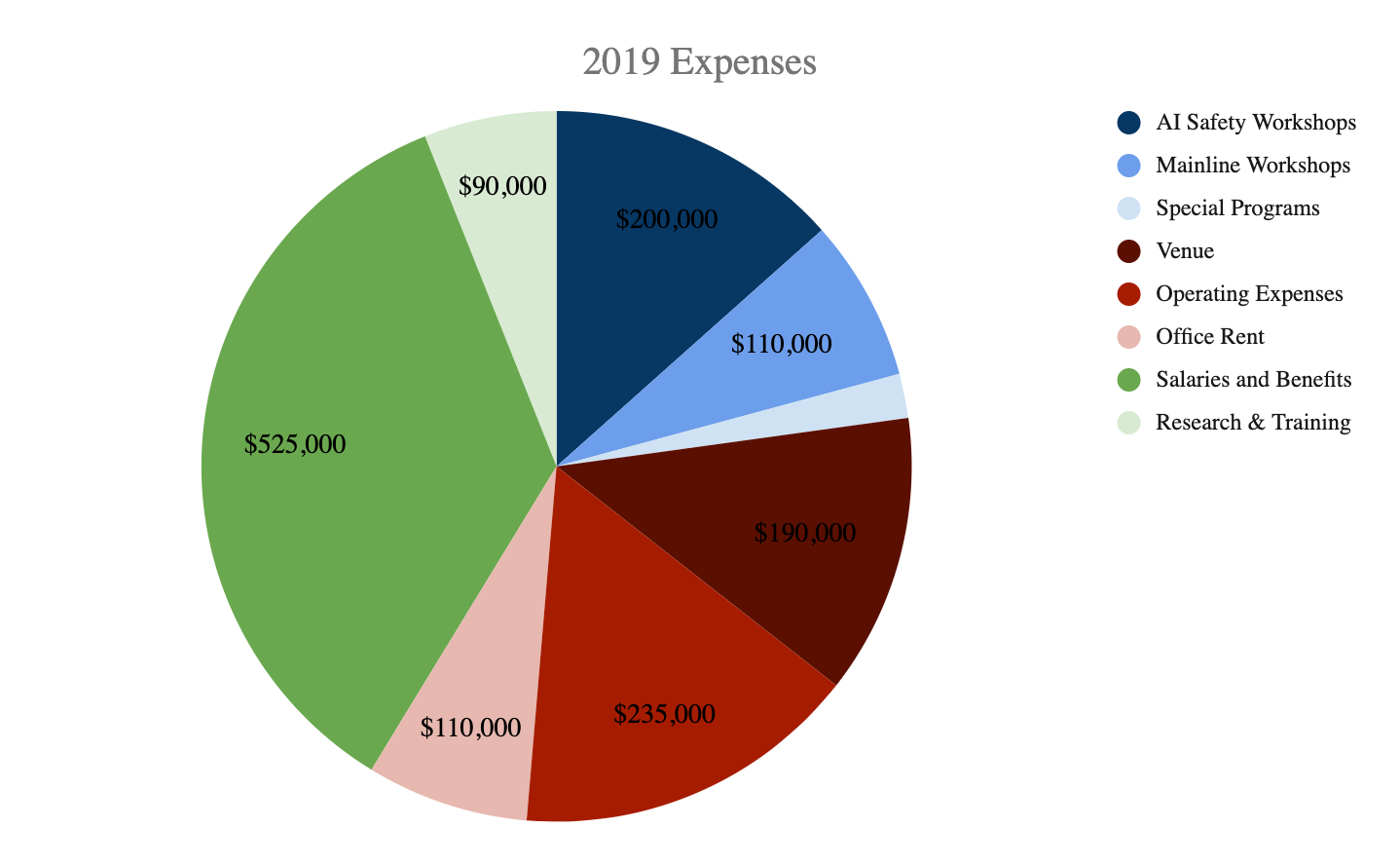
2020 Outlook
As of December 1, CFAR has about $1.4 million—$650,000 of cash, $575,000 of expected grants, and roughly $215,000 of accounts receivable (expected reimbursements from MIRI for AIRCS and MSFP).
In 2020, we expect to spend approximately $115,000 per month, although that fluctuates as (among other things) a function of our staff size and workshop output rate. Assuming our expenses and workshop revenue in 2020 are similar to those in 2019, CFAR currently has about 12 months of runway; in general, we aim to operate at about 18 months of runway.
We’re planning to apply for a $225,000/year renewal grant from SFF in 2020. The Open Philanthropy Project, which funded CFAR at about $500k/year from 2016-2019, has decided not to continue providing us general support at this time. However, they are recommending a partial exit grant of $375k in 2020. We are currently seeking new sources of funding to avoid major cutbacks to our budget and strategic plan.


